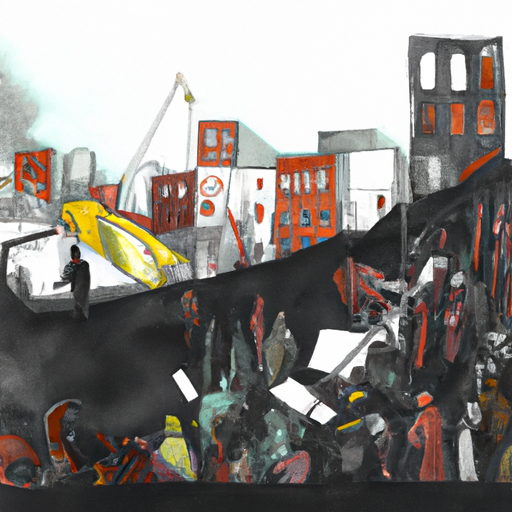The Opioid Crisis in Belleville: A Need for New Health Hub
In ongoing discussions about the Canadian opioid crisis, Quinte News recently highlighted the increasing severity of the issue in Belleville, Ontario. The piece illustrates a desperate need for a comprehensive health hub, a centralized location for essential services.
Current Status of Opioid Crisis in Belleville
Belleville has been significantly impacted by the opioid crisis. The rise in opioid-related deaths, crime, homelessness, and increased strain on public resources require immediate attention. As outlined in the referenced article, local authorities are dealing with the harsh reality on the ground. Despite distributing naloxone kits, the drug-related fatalities continue to rise. This calls for a more proactive approach to tackling this crisis.
Opioid Crime and Homelessness
Crime rates associated with opioid use have soared, with local police witnessing a sharp increase in opioid-related crime. Such increases, particularly in property crime, pose a significant threat to public safety and the sense of community within Belleville.
Complicating matters further, homelessness has become intertwined with the opioid crisis. The lack of a fixed address makes it more challenging to provide assistance to individuals dealing with opioid addiction. In a rapidly intensifying cycle, homelessness and opioid use feed into each other, making both issues more difficult to address.
Proposed Response: A New Health Hub
Responding to the severity of the predicament, local advocates are urging the provincial government to fund a new health hub in the region. This health hub is intended to provide an array of essential services for those suffering from opioid addiction, and could serve as a pivotal resource for combating the crisis at hand.
Necessity of A Business Case
However, the provincial government maintains that a business case is necessary for the creation of the proposed health hub, security funding and presumably to ensure effectiveness. While the necessity of a business case remains a contentious topic, the empathetic need to help the afflicted cannot be overstated.
During this ongoing opioid crisis, the need for such a health hub becomes more apparent. Its potential benefits include:
- An increased capacity to aid those suffering from addiction
- A reduction in opioid-related crime
- A strategy to reduce homelessness associated with opioid use
- A centralised location for the distribution of naloxone and other essential resources
Local Efforts
In the meantime, local efforts are in place to combat this crisis. Police, emergency medical services, and public health authorities are not only distributing naloxone kits but are also coordinating their efforts to address the opioid crisis’s repercussions. These include property crime, homelessness, and associated public health challenges.
Looking Forward
The opioid crisis in Belleville demands immediate action. The discussion around the proposed health hub and the need for a comprehensive business case brings attention to a balance of ensuring effective use of resources and the real-time necessity to address the opioid crisis. While the debate continues, the community counts on current local efforts to manage this crisis.
In conclusion, the opioid crisis, opioid class action, growing rate of homelessness, crime, and the necessity for a greater supply of naloxone appear not as separate issues, but interlinked facets of the crisis. The discussions around a comprehensive health hub and business case further underscore the complexity of the problem facing Belleville. It is imperative that solutions place people first, acknowledging the interconnectedness of these issues, the urgent need for action, and that behind each statistic lies an individual who is part of the community.
